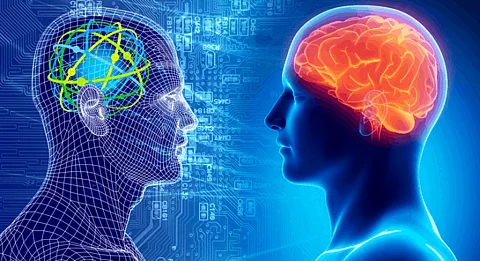
- Insights
- Cryptocurrencies
- Stocks
- White Papers
- Industry
- Geography
- Insights
- Cryptocurrencies
- Stocks
- White Papers
- Industry
- Geography


It is not a secret that the integration of innovations in the healthcare industry has brought tremendous changes in it. These changes have helped patients to get better treatment, have a quicker recovery, and lead improved lives, while doctors can diagnose better and save millions of lives.
Artificial intelligence (AI) and cognitive technologies have gained significant traction and have been more widely adopted in recent years. Increased adoption of cognitive and AI platforms can be attributed to their wider application potential across the healthcare industry, including patients and hospitals. It uses data mining, pattern recognition, and natural language processing, to imitate the way the human brain works and thinks. The more data is fed, the better understanding it has to make a decision.
The Cognitive Computing Market Size is Projected to Grow from USD 20.5 Billion in 2020 to USD 77.5 Billion by 2025, at a CAGR of 30.5%. The research report which aggregates the current market size based on volume and average price data provides objective measures to tap into future opportunities that will be available over the next six-years. It also highlights key areas to watch over the future along with detailed insights into drivers and challenges across different Healthcare Cognitive Computing applications and products. It is believed that this study can help clients save time and instead focus on the evaluation and development of this sector in the coming years.
The market for cognitive computing comprises of 5 factors viz:
a) Type of offering: Hardware, Software, Services
b) Technology: Natural Language Processing, Context-Aware processing, Deep Learning, and Querying method
c) Application: It can be either of the robot-assisted surgery, preliminary diagnosis, clinical trial participant identifier, dosage error reduction, virtual nursing assistant, administrative workflow assistance, fraud detection, etc.
d) End-user: Healthcare provider, Pharmaceutical and Biotechnology Company, Patient or Payer, where each has its unique role.
e) Product Type: Machine Learning, Data Extraction, Interpretation, Language Processing and Training, Speech Recognition, Optical Character Recognition, Computer Vision, Automated Planning
f) Geography: Area wise segregation or zones.
There are significant advantages of utilizing cognitive computing for healthcare. These include:
• Faster Medical Research: Massive quanta of data can be easily analyzed. This is possible due to the ability to collect, juxtaposing and cross-referencing data. Medical records and information will made accurate and up-to-date. This will enable practitioners to develop the proper insight and plan for the provision of the best quality patient care thanks to individualized treatment plans. Furthermore, it can help uncover new insights in relationships among genes, proteins, pathways, phenotypes, and diseases.
• Improvement in daily processes: It can help practitioners optimize their operational and clinical efficiency. The right technology and optimum healthcare delivery services will enable you to analyze and summarize patient information and still ensure enough time for your staff to take care of your patients.
• Encourage healthier patient behaviors: By determining important findings, disease projection, it will be easier to prescribe healthy habits for the patients by convincing patients to take better care of themselves.
• Improved Customer Interaction: As per claims by tech experts, robotics process automation can enrich patients' relations by providing them with relevant and contextual information without the need for staff interaction.
However, like every technological product, this too has to tackle some major obstacles. Besides man's fear of adapting to change and hesitant minds, these issues need to be resolved for smooth adopting in the future. Here the key challenges are:
• Safety: In the age of digitalization, security will always be a concern, hence a major priority. To handle an enormous amount of data, there must be proper data encryption and protection.
• Adoption: For this, several collaborations between government and other stakeholders must be done for streamlined results.
• Management /Upgradation: Due to the basic human instinct, man is paranoid if this will someday replace him, as its' main objective is to mimic the human thought process. Though what he fails to realize is that cognitive computing is being built to work in sync with humans and have a symbiotic relation.
• Lengthy Development Cycle: Currently, Cognitive Computing is being developed and researched as a generalized solution. This may not have immediate benefit nor functionality for a wider range of industries for addressing scenario-based situations. Gradually with time, development cycles become shorter.
To wrap up Cognitive Technology is heralded as the Third era of computing. Given the spur of market demands, partnerships with research institutes for testing, by companies like Nuance Communications Inc., Koninklijke Philips N.V., NVIDIA Corporation, increasing chronic diseases, acting as growth drivers will accelerate this sphere. It will eliminate time and travel constraints of doctors and patients by making robots equipped with skills to conduct an operation, delegate mundane analysis of clinical trials and drug discoveries that address complex healthcare procedures. It also has bonus benefits of reducing the costs of missed diagnoses and sub-optimal treatment plans. This revolution will soon be deemed superior, best-practice, make decision-relevant information for everyone in the health system, nullifying the one approach fits all experience.
